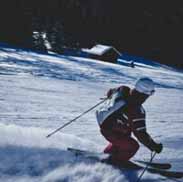Educational Psychology – Chapter 1, Woolfolk, 11th Edition – Flashcards
Unlock all answers in this set
Unlock answersquestion
The No Child Left Behind Act was passed on January 8, 2002. The NCLB was a reauthorization of the ESEA p.5
answer
NCLB
question
The Elementary and Secondary Education Act was passed in 1965. p.5
answer
ESEA
question
James taught Hall who taught Dewy. p.10
answer
What do William James, G Stanley Hall and John Dewy have in common with Socrates, Plato and Aristotle?
question
Founded field of Psychology in America and developed lecture series entitled "Talks to Teachers about Psychology." p.10
answer
William James
question
James's student, Hall founded the American Psychological Association. p.10
answer
G. Stanley Hall
question
Hall's student, Dewy founded the Laboratory School at the University of Chicago and is considered the father of the progressive education movement. p.10
answer
John Dewy
question
A distinct discipline with its own theories, research methods, problems and techniques to apply in research on learning and teaching. p.10
answer
Educational Psychology
question
Studies that collect detailed info about specific situations using observation, surveys, interviews, recordings, or a combination thereof. p.12
answer
Descriptive Studies
question
A descriptive research approach focusing on life within a group and the meaning of the events to the people involved. p.12
answer
Ethnography
question
When the researcher becomes a participant in the situation for a better understanding of life in that group. p.12
answer
Participant Observation
question
An intensive study of one person or situation. p.12
answer
Case Study
question
Statistical description of how closely two variables are related. p.12 (-1.00 through 1.00) .10 = weak relationship .80 = strong relationship
answer
Correlations
question
Indicates that two factors are increasing of decreasing together. p.12
answer
Positive Correlation
question
Indicates that one factor increases as the other decreases. p.12
answer
Negative Correlation
question
Research with experimentation in which variables are manipulated and the effects recorded. p.12
answer
Experimental Studies
question
People being studied chosen at RANDOM. p.12
answer
Participants AKA Subjects
question
Differences in results for experimental studies that did not just happen by chance. p.13
answer
Statistical Significant
question
An experiment not conducted in a laboratory. p.13
answer
Field Experiment
question
The goal of these studies is to determine the effects of therapy or teaching method commonly using ABAB method p.13
answer
Single-Subject Experimental Designs
question
(A) Assess behavior (B) Intervene and note results (A) Remove intervention and assess behavior (B) Reinstate Intervention p.13
answer
ABAB
question
The goal of this study is to intensively study cognitive processes in the midst of change as the change is happening. p.13
answer
Microgenetic Studies
question
Studies that take place over time, perhaps months or years. p.14
answer
Longitudinal Studies
question
Systematic observations or tests of methods by schools or teachers to improve teaching and learning. p.14
answer
Action Research
question
Established relationship between factors such as teaching style and student achievement. p.14
answer
Principle
question
A scientific statement based on principles that attempts to explain a phenomenon and make predictions. p.14
answer
Theory
question
Piaget, Freud, and Erikson p.16
answer
Stage Theory Psychologists
question
(1896-1980) Described the four stages of cognitive development as sensorimotor, preoperational, concrete operational, and formal p.16
answer
Jean Piaget
question
(1856-1939) Dream analyst who decided there were the same five stages of psycho-sexual development for everyone. p.16
answer
Sigmund Freud
question
Gradual orderly changes by which mental processes become more complex and sophisticated. p.16
answer
Cognitive Development
question
(1902-1994) Synthesized Piaget's and Freud's theories into his psychosocial theory. p.17
answer
Erik Erikson
question
Interdependent stages with their own goals, concerns, accomplishments, and dangers describing individuals emotional needs to the social environment. p17
answer
Psychosocial Theory
question
Conflict between positive and negative alternatives we may use to resolve a developmental crisis and prepare for the next stage. p.17
answer
Development Crisis
question
Behaviorism, Information Processing, and Social Cognitive Theory. p.17
answer
Learning and Motivational Theories
question
Learning theory that focus on observable behavior. Key concepts: Conditioning, reinforcement, punishment, and cueing. p.17
answer
Behaviorism
question
Behaviorism, Antecedent-Behavior-Consequence
answer
A-B-C
question
The human minds activity of taking in, storing, and using information. p.17
answer
Information Processing
question
Theory that adds concern with cognitive factors such as beliefs, self perceptions, and expectations to social learning theory. p.17
answer
Social Cognitive Theory
question
(1925-) Established social cognitive theory of learning and motivation to combine behavioral concerns with consequences and cognitive interests in thinking. p.17
answer
Albert Bandura
question
The total setting or situation that surrounds and interacts with a person or event. p.18
answer
Context
question
Phase at which a child can master a task if given appropriate help and support. p.18
answer
Zone of Proximal Development
question
(1896-1934) Believed that human activities take place in a cultural setting and cannot be determined apart from those settings. p.18
answer
Lev Vygotsky
question
(1917-2005) Developed the bio-ecological Model that is most widely used today. p.19
answer
Urie Bronfenbrenner
question
A framework to map the many interactive nested social and cultural contexts that affect development. p.19
answer
Bio-ecological Model



